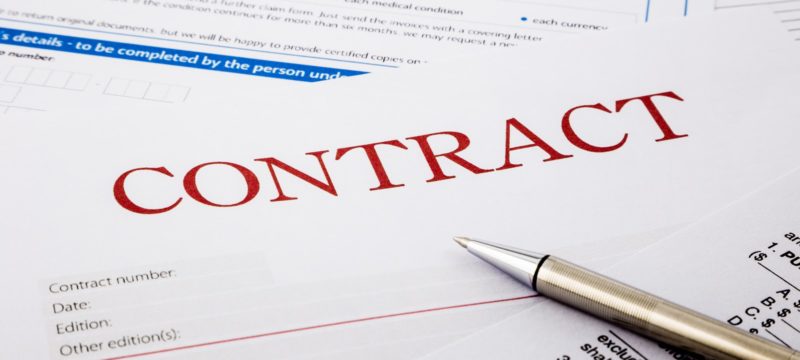
How Are 50/50 Shareholder Disputes Typically Resolved in Maryland?
- April 2, 2019
- William Heyman
- Comments Off on How Are 50/50 Shareholder Disputes Typically Resolved in Maryland?
When a business has two owners, both usually must agree on major decisions about the company. Unfortunately, this creates the opportunity for disagreements to result in deadlock – which, if not addressed effectively, can hinder operations and ultimately prove fatal to the business. The question is, what steps can 50/50 shareholders take to prevent this from occurring? In this article, Baltimore shareholder dispute attorney Bill Heyman discusses methods for resolving 50/50 shareholder disputes in Maryland. If your small business is struggling due to an owner or shareholder dispute, contact the Heyman Law Firm for a free consultation about how our business litigation lawyers can help.
3 Ways of Resolving a 50/50 Shareholder Dispute
When two individuals share ownership of a company, valuable guidance may be found in a shareholder agreement, which, similar to a partnership agreement or operating agreeement, sets forth the rights and duties of each shareholder in various scenarios. For instance, it is typical for shareholder agreements to feature a dispute resolution clause setting forth courses of action that may be followed in the event of a disagreement. If you do not have a shareholder agreement, other documents may provide direction, such as the company’s articles of incorporation or corporate bylaws.
When reviewing or negotiating a shareholder agreement in Maryland, it is vital to work with a Baltimore business attorney who has ample experience helping small business owners to successfully resolve and move forward from costly disputes. Depending on the nature of the dispute and the provisions of your shareholder agreement (or other business contracts), your business dispute attorney may advise you to pursue various shareholder dispute resolution strategies, which include negotiation, mediation, and, if other approaches fail to settle the disagreement, litigation.
#1: Negotiation
It is not unusual for shareholder agreements to require shareholders to exhaust alternative dispute resolution (ADR) methods, which include negotiation and mediation, before filing a lawsuit. When successful, negotiation can be a comparatively simple and inexpensive means of settling a disagreement between shareholders.
In negotiation, the shareholders will generally meet in person, along with their representatives, with the goal of reaching an acceptable compromise. For instance, one shareholder may agree to sell his or her shares, effectively ending the dispute. Depending on the situation, it may be possible to sell shares to a third party, or to divide the company’s assets. If the other shareholder is not willing to make or accept a reasonable offer during negotiations, other resolution methods must be explored.
#2: Mediation
If negotiation fails to yield an acceptable result, it may be necessary to explore mediation. Mediation is similar to negotiation, with one critical difference: unlike negotiation, mediation is guided by an appointed mediator, who is intended to function as a neutral third party overseeing the proceedings. The mediator’s role is to facilitate the session and help the shareholders reach a mutually acceptable decision.
#3: Litigation
To reiterate, many shareholder agreements contain clauses specifying that attempts at ADR be made before resorting to litigation in the event of a shareholder dispute. In many cases, alternative dispute resolution proves to be a cost-efficient and relatively quick method of settling disagreements between business owners.
Though a slower and more complex process than negotiation or mediation, litigation may nonetheless be the best option under certain circumstances. A Baltimore partnership dispute attorney can assess the situation to determine what types of legal strategies are most appropriate in your case.
The court may reach various outcomes, which you should be aware of if you decide to litigate your case. For instance, the court may order one shareholder to sell his or her shares, generally at a set price, resulting in a buyout and ending the dispute. Critically, the court’s decisions are binding, which means that all parties must obey the court’s orders.
Failure to comply with court orders may lead to fines and other serious consequences – which could place your business into the same financial danger you were trying to avoid. Therefore, it is vital to comply with court decisions. If the other party fails to comply, an attorney can assist you.
Maryland Business Dispute Attorneys in Baltimore
At the Heyman Law Firm, we are trusted, respected shareholder dispute lawyers with more than 25 years of experience helping partnerships, limited liability companies (LLCs), S corporations, and C corporations put an end to costly deadlock and get operations back on track. If you need assistance resolving a difficult dispute with your business partner or another shareholder, our dedicated and knowledgeable attorneys are here to help.
Contact the Heyman Law Firm online today to arrange a free consultation, or call our law offices at (410) 305-9287 to speak with an attorney regarding your business dispute. With offices in Baltimore, we serve small businesses throughout Maryland.
